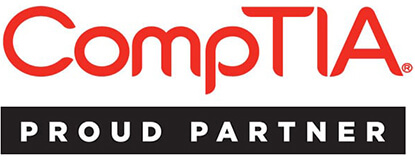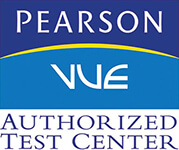Women in IT – Be Part of the Future
From the very beginning, women have served an invaluable role in the field of Information Technology. Some of our most important advances have occurred at the hands of women and by teams including women. Why then, are there not more women in IT?
According to a study by the National Center for Women & Information Technology (NCWIT), only 25 percent of IT jobs were held by women in 2015. These numbers have been declining since 1991, when the numbers reached an all-time high of 36 percent.
These statistics are troublesome for several reasons. First, women comprise almost half of the labor force. With IT growing exponentially, women will be needed to fill important roles.
“If you take a look at labor statistics or employment projections one of the things that is easy to see is that there are far more jobs out there than there are people qualified to do them,” said Susan Wilbert, Curriculum Development Manager for Asher College.
Second, as stated in the NCWIT report, “the technology the world uses today is being created by a relatively homogenous group of people” and without women, there is a lack of diversity that is critical to “innovation, problem-solving and creativity.”
Several organizations are working to promote the importance of women in IT. One such organization is the Computing Technology Industry Association (CompTIA), a non-profit information technology trade organization dedicated to advancing industry growth through education, research, certification, networking and advocacy.
“IT is more important in the business world than it has ever been before,” said Wilbert. For a woman today who is looking to enter into a job that would provide them with a life-long career, IT is definitely something to consider.”
Susan Wilbert’s love affair with information technology began in the 1980’s. She was a bookkeeper and office manager for a company that sold computers. She discovered she enjoyed working with computers and the next thing she knew she was developing computer training programs for the company. She hasn’t looked back since.
“Information technology is exciting. It is ever-changing and always evolving. Every time I get to a place where I think I have learned everything there is to learn, I discover A) I was wrong and B) there is a new frontier of excitement and a new opportunity for me to learn all over again.”
When Susan began her IT career, she said it was a bit of a “boys club” and although she doesn’t feel she was personally excluded, she witnessed many instances where women were “frozen out of the field because it wasn’t a girl thing to do.” She says she feels this has changed and that the IT realm offers countless opportunities for women.
“IT has grown so dramatically – the advances, the new features, the new technologies – over the last thirty years. You have to come in with a considerable level of knowledge just to get your foot in the door. The amount of information and the skill set that has to be learned levels the playing field. A woman who walks in with the same level of skills, experience or training, I think, is given fair consideration in the job market and fair opportunity to grow and advance.”
However, Susan has noticed that at times women are “their own-worst enemies.” She said she believes women bring unique skill-sets to the table but public perception and “negative talk” gets in the way of women entering the IT field.
“I have heard women say, ‘I am not good at math, I am not good at science, I could never master programming’ when point of fact, none of those things are true. Working in IT is not beyond any woman that I have ever met. Once the negative self-talk is removed, the skills can be learned.”
Susan currently develops the curriculum for Asher College for all of its programs. Students at Asher College can become prepared for entry-level information technology careers such as PC technicians, tier 1 technical support, tier 2 level technical support, system administration, networking administration, database design and administration, and operating system support, among others.
“There are so many different career options in Information Technology,” said Wilbert. “There are also a lot of roles where an understanding of IT can add an important skill-set and increase work opportunities.”
For women considering IT, Susan offers the following advice:
“Give it a chance. Take one class. Go to one lecture. Talk to another woman in the field. See what you can learn and then you will see that it is not as hard as you think it is. It may open up a whole new world for you.”






